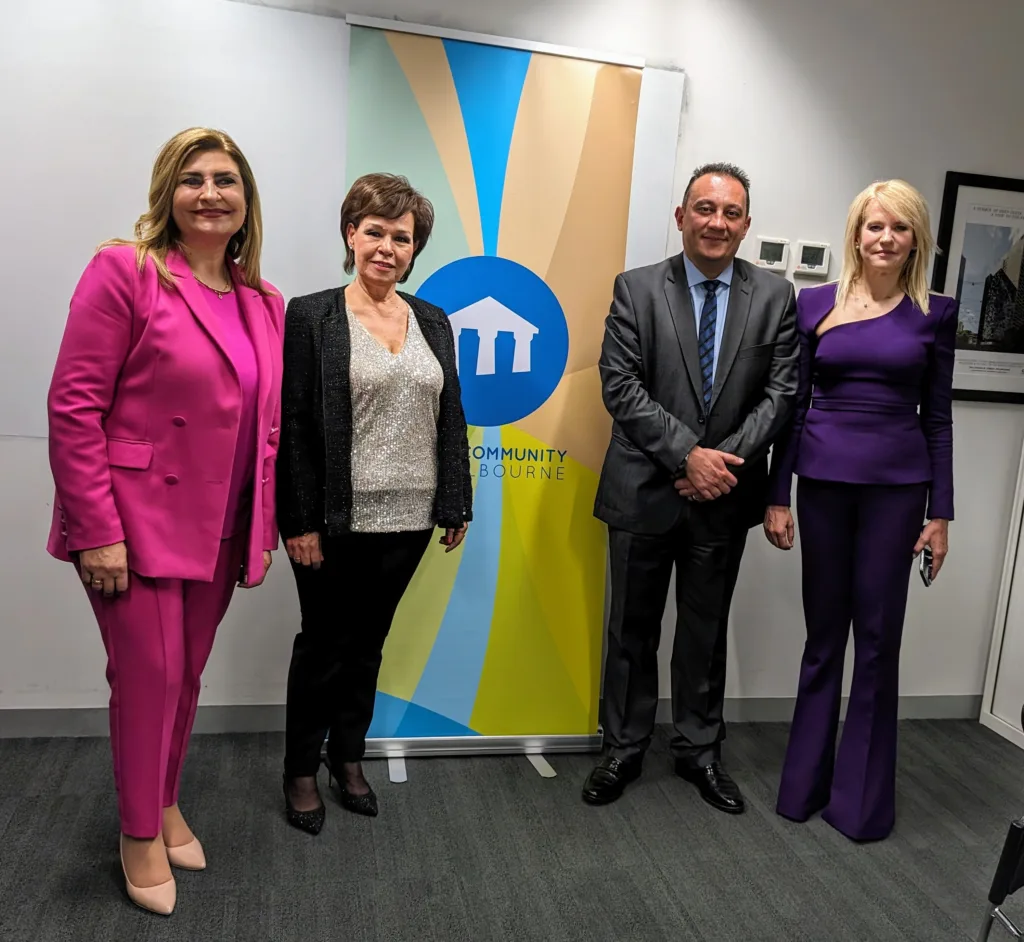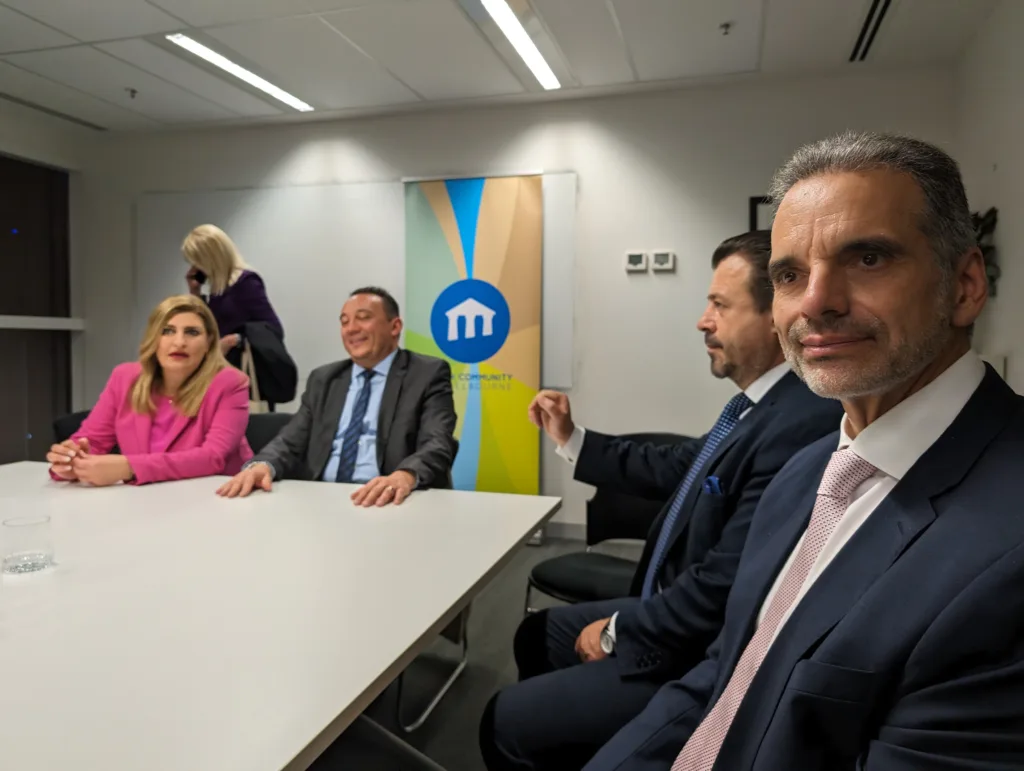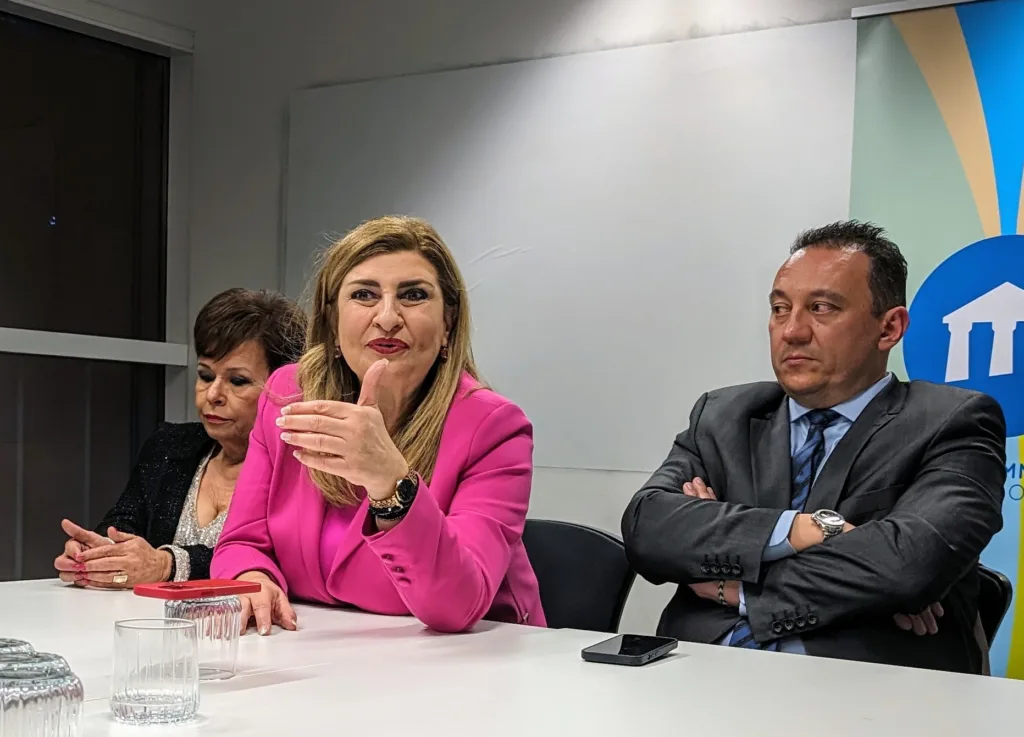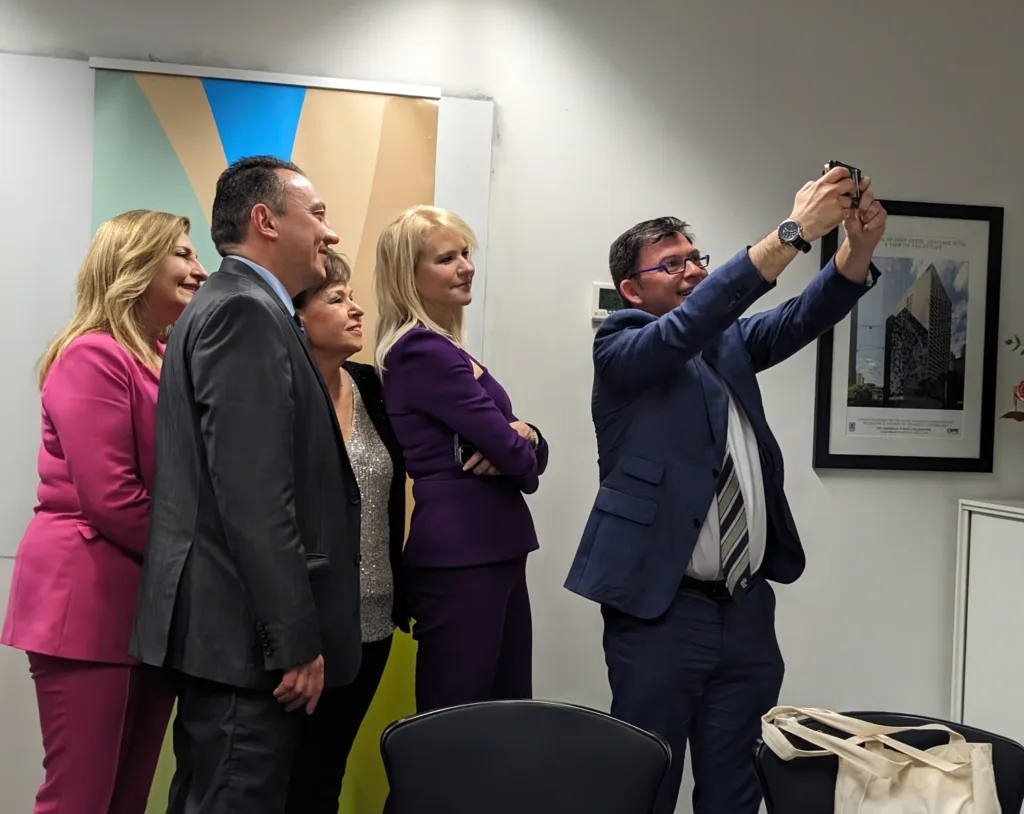By Mary Sinanidis.
Four representatives of the Special Permanent Committee on Greeks Abroad (consisting of 31 MPs) said they came “to listen” to the Australian diaspora. In their meeting with local journalists at Melbourne’s Greek Centre following a reception held in their honour last week, they had a lot to say.
They shared their views on several issues, doing their best to appease the Greek Australian diaspora, overlooked with much of Greece’s focus being on America’s Greeks. As a result, there is no Double Taxation Agreement between Greece and Australia, no Greek National Tourism Organisation, and no real understanding of the unique needs of Australia’s Greek language learners.
Here are some of the issues, the visiting parliamentarians touched upon:

Postal vote
Out of the estimated 700,000 Greeks in Australia, only around 500 have registered to vote. Former Foreign Minister for Greeks Abroad Constantinos Vlassis said, “You should advertise it so that the true strength of Greece is shown.”
Radical left SYRIZA member Theodora Tzakri said her party had voted against the legislation due to an amendment made, however conservative New Democracy party member Asimina Skondra said, “you could vote against the amendment but still support the legislation.”
Both Ms Tzakri and Evangelia Liakousi, socialist PASOK-KINAL member, pointed to a data breach by Anna-Michelle Asimakopoulou regarding emails that had come from Nikos Theodoropoulos, New Democracy’s secretary for diaspora affairs. The breached data did not include tax or social insurance numbers, but overseas voters may have been alarmed by this.
“What is the motivation for Greeks to vote? We need to look at this even though it is unpleasant,” Ms Liakousi said. “Do we want them to come once a year, once every two years? Do we want them to have homes and property in Greece? Do we want them to vote in Greece? All factions need to be clear on this.”
Ms Skondra said, “We don’t just want the diaspora for their vote or to support us. We believe they are an irrevocable part of Hellenism. You support Greece, you support your people, you support the place where you vote… Your heart beats Greek.”

Double Taxation Agreement
The lack of a Double Taxation Agreement means that Greeks in Australia are taxed twice, with expatriates seeing their investments shrink as two tax offices get a slice of the pie.
Dr Vlassis said “You need two to tango when it comes to a treaty,” but local journalists informed him of the Australian government’s stance that the delay was coming from Greece.
Ms Tzakri spoke of her discussions for a Double Taxation Agreement with the former Australian Ambassador to Greece, Arthur Spyrou.
“It needs to pass swiftly,” she said. “Each state has to create its own rules, but it needs to proceed. We can’t just say Melbourne is the third largest Greek speaking country in the world. This needs to be supported by infrastructure.”

Greek language learning
Ms Tzakri said, “Without Greek language you can’t have the continuation of Hellenism outside Greece,” whereas Ms Liakousi said, “Your children, grandchildren, great grandchildren won’t speak Greek. Language is important.”
Ms Liakousi pointed to the importance of documenting the number of language speakers. Not just the constantly dwindling number of Year 12 students learning Greek, but all ages, before creating a strategy.
They both praised the language level of Greeks they had met during their visit. Ms Tzakri said there was a “respectable foundation” for language learning thanks to the Greek Australian colleges and schools. She pointed to a system in the United States, where Greek language is popular due to the credit point system – a motivator for students to get into universities – and suggested this for Australia.
Ms Tzakri encouraged the use of the Greek Centre for Language Learning in Thessaloniki as a resource, but did not delve into why this is not being utilised by teachers. She said that those who studied Greek at a university level should be used by the local system as opposed to bringing teachers to Australia from Greece.
Ms Skondra said “language is something we must focus on” before unveiling a plan to encourage foreign universities to open branches in Greece. She pointed to the benefits for Greek students who are going abroad for tertiary studies.
None of the visiting parliamentarians had heard of Pharos, the Modern Greek Teachers Association of Victoria, and efforts being made to preserve the language.

Brain Drain
Ms Tzakri said she was “amazed” by the brain drain in the medical profession, but Dr Vlassis said Greece always had an oversupply of doctors and is still supplied well by the medical profession.
All Parliamentarians pointed to the 1,500-euro per month wage received by doctors as a disincentive. Ms Skondra’s daughter, a medical professional, had been asked to leave Greece to practice in Switzerland for 12,000 euros a month and other perks.
Ms Skondra said two types of migrants left during the brain drain: those who were really struggling, and those who could have stayed with less but wanted a higher standard of living.
In that regard, Ms Liakousi shared the story of her eldest nephew who went to Germany and whom she encouraged to stay where he was.
“For someone to come back we need better conditions,” Ms Tzakri said, pointing to Greece being the second-last country in the EU27 per capita in GDP, sliding in just above Bulgaria.
Dr Vlassis pointed to hope for the future through incentives such as the creation of a pharmaceutical hub in Tripoli as investments of 180 million euros are planned, creating more than 1,000 new direct jobs.

Consulate staff
With the Greek Consulates in Sydney and Melbourne being understaffed, it takes delays of up to two years for appointments to obtain Greek citizenship.
Dr Vlassis said Australia was not desirable to Greek staff paid their local wages due to its high cost of living. The Supreme Court decreed wages cannot be increased.
“There are electronic procedures that did not exist before,” Dr Vlassis said. “The Consul General is operating as a registrar, cutting through bureaucracy.”
Ms Tzakri agreed that digitisation of services is the solution, while Ms Liakousi said “consuls are images of our country to the outside” and urged for more efforts to help.
Greek National Tourism Organisation
Once again, Greek officials have given a promise for a Greek National Tourism Office (GNTO) to open in Australia. Ms Liakousi admitted she had read numerous articles about the opening of the office over the last five years, whereas Ms Skondra stated surprise that there wasn’t one yet bearing in mind the Greek Community’s offering of a space at the Greek Centre free of charge to the Greek government.
Dr Vlassis said he spoke with Tourism Minister Olga Kefalogianni and she had agreed to a person at this office on a three-year contract. This would bring an open issue since 1954 to a halt.
The parliamentarians said the dialogue with Australia’s Greek diaspora is ongoing. Their visit was to start a dialogue and invited diasporans to get in touch with the Special Permanent Committee of Greeks Abroad at any time.

